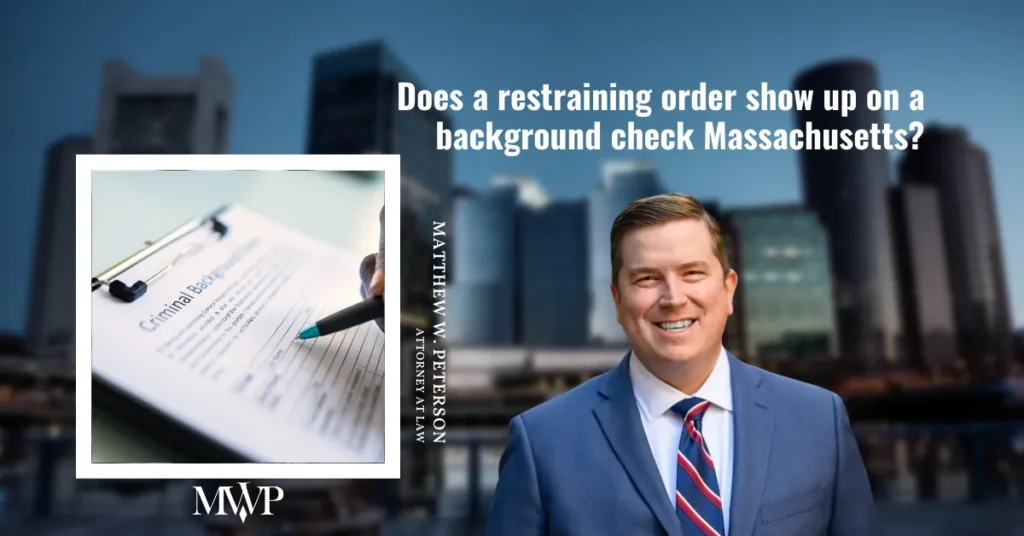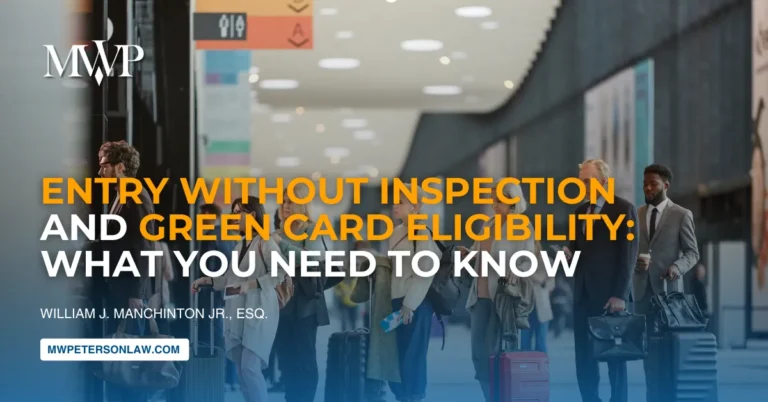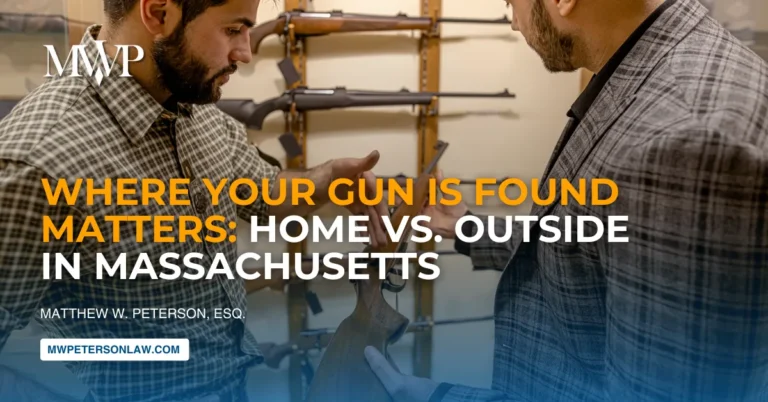If you’re dealing with a restraining order in Massachusetts, you might worry about how it could affect your future employment. Let’s break down what you need to know about restraining orders in Massachusetts and background checks in simple terms.
Do Restraining Order in Massachusetts Show Up on Background Checks? Short Answer: It Depends
Under Massachusetts CORI (Criminal Offender Record Information) law, restraining orders in Massachusetts typically don’t show up on standard background checks. However, there’s more to the story. While they might not appear on basic employment screenings, restraining orders can be found through:
- Court background checks
- Specialized background check companies
- Public records searches
What Exactly Is a Restraining Order?
A restraining order is a civil court order that sets legal boundaries for someone’s behavior. It can:
- Prevent someone from contacting another person
- Keep someone away from specific places
- Address child support and custody matters
- Affect firearm rights, including requiring the surrender of weapons and licenses
Types of Restraining Orders in Massachusetts
There are two main types of Restraining Order in Massachusetts:
- For family members
- For people in dating relationships
- For people not related or living together
- For situations involving harassment
The Restraining Order in Massachusetts Process
Getting a restraining order in Massachusetts involves two main steps:
First, there’s an “ex parte” hearing. This means:
- Only the person requesting protection is present
- A judge decides if emergency protection is needed
- It’s a temporary measure
Then comes the two-party hearing:
- Both sides can present their case
- The judge decides if a longer order (up to one year) is warranted
- This is a crucial moment that can have lasting effects
Recent Updates in Massachusetts Law
In recent years, Massachusetts has been focusing on enhancing protections and processes related to restraining orders. For example, the updates to MGL c. 209A includes provisions that address technological forms of abuse, such as online harassment, ensuring the law remains relevant in the digital age. Furthermore, the state has been working to streamline the process for obtaining and serving restraining orders to increase efficiency and victim safety.
Navigating Employment Concerns with a Restraining Order
While a standard background check might not reveal a restraining order, it’s essential to be aware of the broader implications. Certain professions, particularly those involving work with children or vulnerable populations, may conduct more thorough background checks that include court records. Being proactive and seeking legal counsel can help you understand how a restraining order might affect your specific career path and what steps you can take to mitigate any potential negative impacts.
The Role of CORI in Protecting Your Privacy
The Massachusetts Criminal Offender Record Information (CORI) law aims to balance public safety with an individual’s right to a second chance. While CORI generally protects certain criminal records from being widely accessible, it’s important to understand that civil restraining orders fall into a different category. Although they are not typically part of a standard CORI check, they are public record and can be accessed through court record searches.
Why Legal Help Matters
If you’ve been served with a restraining order in Massachusetts, getting legal help quickly is crucial. Here’s why:
- Going to the hearing alone could result in a year-long order
- Once an order is issued, it’s very difficult to remove
- Even if it doesn’t show up on standard background checks, the order can have lasting consequences
- An experienced Boston restraining order attorney can help protect your rights and future opportunities
Protecting Your Future
While Massachusetts law generally prevents restraining orders from appearing on standard employer background checks, they can still affect your life in various ways. Background check companies might find this information through public records, and certain types of checks (like court records searches) will reveal restraining orders in Massachusetts.
Need Help?
If you’re facing a restraining order in Massachusetts, don’t wait to get help. The Law Office of Matthew Peterson can help you understand your rights and work to protect your interests, both now and in the future.
Call The Law Office of Matthew Peterson Today!
Don’t face a restraining order in Massachusetts alone. Protect your rights and secure your future with the right legal guidance. Call The Law Office of Matthew Peterson at 617-295-7500 today or schedule a confidential consultation online. Time is critical—our experienced Massachusetts restraining order attorneys are ready to provide the personalized support you need. Let us help you take control of your situation and build a strong defense. Your future deserves the best protection—contact us now!











